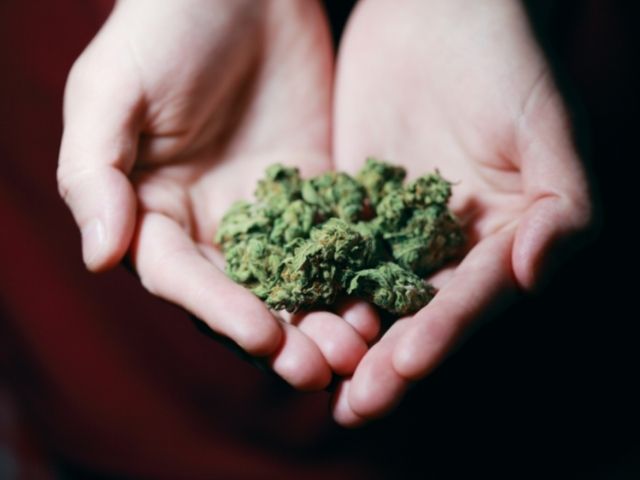How Does Marijuana Legalization Affect Teens?
As teen drug and alcohol counselors, we see and work with teenagers every day who are struggling with drug use. What’s more, we work with their families closely as well. In the new climate of lowering barriers to obtaining, using, and distributing marijuana / THC products, we’d like to provide some of our insight into the real effects of marijuana legalization on teens.
While it’s unclear whether the rate of teen marijuana use has increased due to legalization, what we do know is that there has been a spike in the number of teens who report using marijuana daily, according to NIDA’s Monitoring the Future Survey. The survey also shows that the perception of risk for marijuana use among teens has been significantly lowered.
Does marijuana legalization encourage more teens to smoke weed?
We’ll say this right up front – the jury is out on this one. It’s a complicated topic without a long-established body of research to pull from. Even among the available data, the results are inconclusive:
- In Washington state, a 2020 study concluded that teens “may” be more likely to use marijuana, while a 2018 study reported that marijuana use had declined among 8th graders and 10th graders.
- In California, a 2018 study using data from the California Healthy Kids Survey suggested “minimal effects of legalization”. A 2021 study using data from the next year’s survey found that legalization was “associated with a significant increase” in lifetime and past 30-day marijuana use among adolescents.
- In Colorado, the 2015 Healthy Kids Colorado Survey showed that one in five teens has used marijuana in their lifetime. This number is 85% higher than the national average, but it did not significantly increase after legalization of marijuana in 2012.
- In addition, some of the nation-wide surveys we rely on for data are also inconclusive. The National Institute on Drug Abuse’s Monitoring the Future survey reported a 25% increase in the number of teens using marijuana nationwide, while two separate studies using data from the CDC’s Youth Risk Behavioral Survey found that “There was no evidence that the legalization of medical marijuana encourages marijuana use among youth.”
The answer to whether marijuana legalization encourages more teens to smoke marijuana is that we simply don’t know yet. There are conflicting studies from various states and nationwide. However, we would like to point out that whether more teens smoke weed or not isn’t the only potential side effect of marijuana legalization.
Teenagers who smoke marijuana do so more frequently after legalization
The National Institute on Drug Abuse (NIDA) completes a survey that is released each Fall called the Monitoring the Future Survey. This survey assesses risk factors and risk behaviors in teens and compiles the data to determine trends.
According to the survey, while the number of teens who have used marijuana doesn’t seem to have gone up, the frequency of use has definitely spiked. The number of teens who report using marijuana daily is at its highest level since 1991, with 7% of 12th graders reporting daily marijuana use.
Marijuana legalization’s effect on the perception of risk among youth
According to the Monitoring the Future survey, one of the major changes among teens as a result of legalization is the perception of risk. This is particularly alarming since we have fairly conclusive evidence that marijuana use is significantly more harmful to the developing brain than to a fully developed adult brain (more on that later).
According to the Monitoring the Future survey, less than half of 8th, 10th, and 12th graders view using marijuana regularly to be a great risk since the marijuana legalization push began. This represents a dramatic decline in the perception of risk from the 2010’s.
Why this data matters for teen health
While there is vehement debate as to whether marijuana should be legalized in Georgia and other states, there’s really no debate in the scientific community as to whether or not marijuana is harmful to the developing brain.
- This 2012 study reported that, “Persistent cannabis use was associated with neuropsychological decline broadly across domains of functioning, even after controlling for years of education. Informants also reported noticing more cognitive problems for persistent cannabis users. Impairment was concentrated among adolescent-onset cannabis users, with more persistent use associated with greater decline. Further, cessation of cannabis use did not fully restore neuropsychological functioning among adolescent-onset cannabis users.”
- This 2010 study reported that, “Current research suggests that substance use in adolescence leads to abnormalities in brain functioning, including poorer neurocognitive performance, white matter quality, changes in brain volume, and abnormal neuronal activation patterns.”
- This 2019 study found that marijuana had even more negative effects on a teenager’s cognition than alcohol.
In Conclusion
There are numerous theories around the results presented above. The most popular theory is it’s possible that the new avenues towards getting marijuana are dispensaries who turn away people under 18. We also think there may be other factors at play. For instance, one basic basic principle in addiction is that about 10 percent of the population will have a drug use disorder at some point in their lives. Perhaps the issue with legalization isn’t that more kids will smoke weed, it may be the simple fact that those who do will smoke weed more, and ultimately set themselves up for worse drug use disorders earlier in life than they would have otherwise.
Hopefully, we will see even more complete research on the topic in the coming years, and possibly some meta-analysis by unbiased parties. We will continue to update this post as we see these resources become available.







